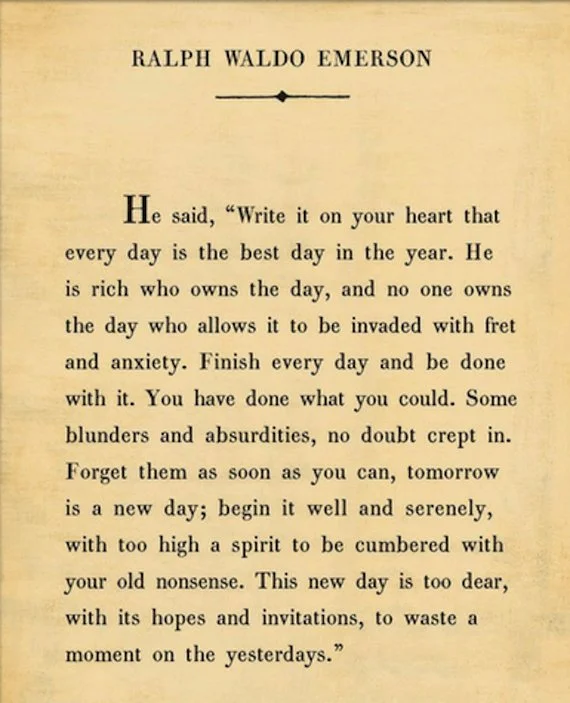The Practice of Retrospection
The Practice
Retrospection is a nightly focused review of the past. Each evening you scan your memory of the days events, the things you dod, the people you met, etc. As you remember each scent, review your own actions and words, and ask yourself:
What have I done? What have I left undone?
What have I done well? What have I done poorly? How can I improve?
Where have I resisting a bad habit or fault?
Have I offended anyone?
How am I better?
Then forgive yourself any faults, and resolve to correct them if you can.
Many people scan backward (evening, afternoon, late morning, early morning), and some scan forward. Ancient sources did not specify. The practice of backward review seems to have become popular among theosophists (Steiner’s “Backward Review”) and Rosicrucians in the early 20th century.
If you have a difficult time focusing, you can begin this exercise by journalling, but ideally you should train your focus to conduct the review in your mind, with focused contemplation. Self-hypnosis can help you enter a relaxed, focused state. You can take my free self-hypnosis course HERE.
Optional: During our waking hours, we engage in many activities and interactions, and we respond to them in a number of ways. Sometimes we respond with the rational, intellectual mind. Other times we are moved by our emotions or by the instinctual impulses of the physical body. This exercise of could also include questioning whether we acted out of the mind, emotions, or body in each event or interaction.
Benefits of Retrospection
The nightly practice of retrospection has multiple benefits:
Memory
The process of remembering the day in sequence trains your memory. Pythagoras was said to be able to recall in backward sequence everything he had done and said throughout his day, even for several days.
Attention
When you review your thoughts, words, and actions nightly, you train your attention to be more mindful throughout the day.
Self-control
Because you become more mindful, you gain more self-control in daily situations. Also, we have more control of our actions in the moment if we know we will review them every day.
Heightened Consciousness
When you make a practice of observing yourself consciously, you shift your awareness outside of the ego to the observer perspective. You become “metaconscious”.
Self-Awareness
By observing how you think, feel, and act in various scenes of daily life, you can observe patterns and form a better overall picture of who you are and who you want to be.
Clarity
You train your mind to see your experiences, but without all of the sensory input that can cloud judgment. When you review events with this clarity, you can guide your choices with reason and intellect, the highest parts of the self.
Deconditioning
You observe and can break the patterns of conditioning by which we follow certain patterns without really thinking about it. This is real freedom.
Sleep
For many people, there’s something about completing the nightly review that helps them to put the day aside, take its lessons, let go of the troubles, and be resolved for a better tomorrow.
The Ancient Foundations of Retrospection
The practice of Retrospection is ancient. Pythagoras of Samos (570-495 B.C.), the first to be called a “philosopher” (i.e. “lover of wisdom”), recommended the following exercise of retrospection before going to sleep:
"Never suffer sleep to close thy eyelids, after thy going to bed,
Till thou hast examined by thy reason all thy actions of the day.
Wherein have I done amiss? What have I done? What have I omitted that I ought to have done?
If in this examination thou find that thou hast done amiss, reprimand thyself severely for it;
And if thou hast done any good, rejoice.
Practice thoroughly all these things; meditate on them well; thou oughtest to love them with all thy heart.
'Tis they that will put thee in the way of divine virtue."
(Golden Verses of Pythagoras, 40-46)
After Pythagoras, the Greek Stoic philosophers recommended similar practices. Epictetus (c. 50-135 A.D.) wrote:
"Let sleep not come upon thy languid eyes Before each daily action thou hast scann'd; What's done amiss, what done, what left undone; From first to last examine all, and then Blame what is wrong in what is right rejoice."
(Epicteus, Discourses, 3.1)
Seneca the Younger (c. 4 B.C. - 65 A.D.) wrote about Quintus Sextius, a Roman philosopher whose philosophy combined Pythagorean and Stoic thought:
"When the day was over and he had retired to his nightly rest, he would put these questions to his soul: "What bad habit have you cured to- day? What fault have you resisted? In what respect are you better?" Anger will cease and become more controllable if it finds that it must appear before a judge every day. Can anything be more excellent than this practice of thoroughly sifting the whole day? And how delightful the sleep that follows this self- examination - how tranquil it is, how deep and untroubled, when the soul has either praised or admonished itself, and when this secret examiner and critic of self has given report of its own character! I avail myself of this privilege, and every day I plead my cause before the bar of self. When the light has been removed from sight, and my wife, long aware of my habit, has become silent, I scan the whole of my day and retrace all my deeds and words. I conceal nothing from myself, I omit nothing. For why should I shrink from any of my mistakes, when I may commune thus with myself?
"See that you never do that again; I will pardon you this time. In that dispute, you spoke too offensively; after this don't have encounters with ignorant people; those who have never learned do not want to learn. You reproved that man more frankly than you ought, and consequently you have, not so much mended him as offended him. In the future, consider not only the truth of what you say, but also whether the man to whom you are speaking can endure the truth."
(Seneca, On Anger)


